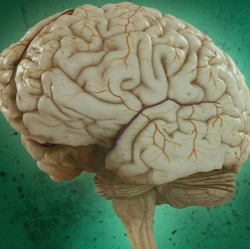
Researchers have found that a drug candidate aimed at combating Alzheimer’s disease has a host of unexpected anti-aging effects in animals. The Salk team expanded upon their development of a drug, J147, which takes a different tack by targeting Alzheimer’s major risk factor, old age.
In the new work, the team showed that the drug candidate worked well in a mouse model of aging not typically used in Alzheimer’s research. When these mice were treated with J147, they had better memory and cognition, healthier blood vessels in the brain and other improved physiological features, as detailed November 12, 2015 in the journal Aging.
"Initially, the impetus was to test this drug in a novel animal model that was more similar to 99 percent of Alzheimer’s cases," says Antonio Currais, the lead author and a member of Professor David Schubert’s Cellular Neurobiology Laboratory at Salk. "We did not predict we’d see this sort of anti-aging effect, but J147 made old mice look like they were young, based upon a number of physiological parameters."
Alzheimer’s disease is a progressive brain disorder, recently ranked as the third leading cause of death in the United States and affecting more than five million Americans. It is also the most common cause of dementia in older adults, according to the National Institutes of Health.
"While most drugs developed in the past 20 years target the amyloid plaque deposits in the brain (which are a hallmark of the disease), none have proven effective in the clinic," says Schubert, senior author of the study.
Several years ago, Schubert and his colleagues began to approach the treatment of the disease from a new angle. Rather than target amyloid, the lab decided to zero in on the major risk factor for the disease; old age. Using cell-based screens against old age-associated brain toxicities, they synthesized J147.
"If proven safe and effective for Alzheimer’s, the apparent anti-aging effect of J147 would be a welcome benefit," adds Schubert. The team aims to begin human trials next year.
